Undergraduate Project Scholarships
If you have any questions or comments about ASAB Undergraduate Project Scholarships, please contact the Secretary of Grants Committee. Usually there are three application rounds per year with deadlines of 1st February (for projects starting on or after 1st May), 1st June (for projects starting on or after 1st September), and 1st October (for projects starting on or after 1st January in the following year).
The next application deadline for
Undergraduate Project Scholarships is 1st June, 2024 (for projects starting on or after 1st September 2024)
“I want to say I really enjoyed the work I did. It’s been the most valuable thing I've completed this year, and has set me up well for a career in animal behaviour research.”
Milly Munro, summer vacation 2021
WONG Ching Ki (Ariel), a second year Veterinary Medicine undergraduate at the City University of Hong Kong, was awarded an ASAB Undergraduate Project Scholarship in February 2023 to investigate how dominance hierarchy affects wallowing behaviour in Hong Kong buffalo. (Photos © WONG Ching Ki)
UNDERGRADUATE PROJECT SCHOLARSHIPs OVERVIEW
Undergraduate Project Scholarships are grants to undergraduates to enable them to undertake supervised research projects that fall within the field of animal behaviour, defined as the sphere of interest of papers published in Animal Behaviour. Projects can run from 1 to 10 weeks during academic vacations (including the vacation immediately following graduation). The applicant (and PI) is the undergraduate, although applications are often written in collaboration with the applicant's academic supervisor.
The scholarship grant in 2024 includes £460 per week towards subsistence for the student, and additional research expenses (including equipment and consumables) and travel expenses (commuting or one-off return journeys between their home, the institute where they carry out the research, and field sites) up to a maximum total grant of £4600. The subsistence costs (and maximum total grant) are calculated on the basis of a weekly rate, which is reviewed annually. Applicants should ensure that they use the correct weekly subsistence rate (and application form download) for the year when the project will be carried out. If you need to know a rate that is not yet shown on the website (and/or application form download), you should contact the Secretary of Grants Committee. Successful applicants who use an incorrect weekly subsistence rate on their application form will have the ‘subsistence’, but not any other expenses, adjusted.
Applicants at an Institute in a Developing Country* proposing a project in another country may request up to £1000 more for expenses that are entailed by carrying out the project in another country (eg travel, visas, living costs). (*A ‘Developing Country’ is defined here as a Low or Middle income country in the World Bank’s classification by the income of countries (scroll down)).
Eligibility
• We welcome applications from applicants who are not members of ASAB, but the applicant's supervisor must be an ASAB member and have a PhD or equivalent degree, or equivalent research experience. (Supervisors who doubt their eligibility should contact the Grants Secretary well ahead of the closing date.)
• Awards will not be granted to support work that contributes to the requirements of an undergraduate or postgraduate degree (including any inclusion in an undergraduate or graduate thesis), whether of the applicant or other person, or for participation in a larger project or expedition.
• The project should be supported by the proposed supervisor.
• Those who have previously received an ASAB Undergraduate Scholarship may not apply again.
• Retrospective applications will not be considered.
• ASAB does not usually fund applications from applicants based in the Americas.
• ASAB does not pay overheads.
• ASAB regrets that it is unable to accept applications from countries where UK government sanctions would prevent payment of an award (see here for information on the countries affected).
Funding criteria
Funding criteria include:
• Evidence that the student has conceived the project and has taken a lead role in the application.
• Novelty and originality of the research proposed.
• Interest and novelty of the biology investigated.
• The likelihood of the proposed work to make a significant contribution to questions of broad relevance (rather than taxon-specific relevance).
• The robustness of the scientific approach adopted (e.g. sound experimental design and hypothesis-testing where relevant).
• The ability of the proposed work to open exciting new avenues of research for more substantial research funding.
• The applicant should bring this webpage to the attention of their supervisor and discuss the project, and in particular the budget, with their supervisor in good time before submitting their application.
• Applicants should limit their request for research expenses to what is reasonably needed to successfully complete the project. Applications where the research or travel expenses appear disproportionate to the length and goals of the project may be rejected.
• Grants cannot be paid to individual’s private accounts but will be paid via the institution at which the work is conducted.
Application Deadline
Applications should be submitted by 1st February, 1st June or 1st October, via email to the Secretary of Grants Committee.
Decisions are made by the Grants Committee, a sub-committee of ASAB Council. Candidates can expect to be notified of the outcome of their application within 3 months of the closing date. Applicants should ensure that they apply early enough that they will know the outcome before they need to make financial commitments related to the project (eg equipment, travel, etc), and in any case before the proposed start of their project.
Application Format
Applicants may download the application form here and the equality and diversity monitoring form here . Applications should be saved using the file name ‘SurnameUG.docx’ and submitted to the Secretary of Grants Committee as an email attachment. The equality and diversity monitoring form should be submitted with the file name changed to ‘SurnameED.docx’ as an attachment to the email in which the application form is submitted or to a separate email.
ONCE YOUR PROJECT IS COMPLETE
Successful applicants are required to submit a report within three months of completion of the project or one month after the ASAB conference at which the work is presented, whichever is later. The report form is available here, and should be saved as SurnameRep.docx and submitted to the Secretary of Grants Committee as an email attachment.
The applicant or their supervisor should acknowledge the financial aid received from ASAB in publications or publicity that result from the research. A copy of all such publicity and publications should be submitted to the Secretary of Grants Committee. Successful applicants are also encouraged to submit a paper on their work to an ASAB conference.
EXAMPLES OF PREVIOUS PROJECTS
Daisy Johnston-Barrett, a third year Biology undergraduate at the University of Bristol, was awarded an ASAB Undergraduate Project Scholarship in February 2023 to investigate how saltatory movement of prey affects the risk of predation. (Photos © Daisy Johnston-Barrett) [Other examples of previous projects can be found at the foot of this webpage]
Milly Munro, a second year Biology undergraduate at the University of Bristol, was awarded an ASAB Undergraduate Project Scholarship in February 2021 to investigate how turbidity and temperature change affect predator-prey interaction in an acara-guppy system. (Photos © Milly Munro)
Shreyas Pai, a Natural Sciences student at the University of Cambridge, was awarded an ASAB Undergraduate Project Scholarship in February 2021 to investigate how environmental complexity and sex ratio modulate sexual selection and sexual conflict in Drosophila and Jungle Fowl at the University of Oxford. (Photos © Shreyas Pai)
Muskaan, an Integrated BS-MS Dual Degree student at the Indian Institute of Science Education and Research, was awarded an ASAB Undergraduate Project Scholarship in February 2021 to investigate behavioural differences among the colour morphs of the Blue-tailed Damselfly Ischnura elegans at the University of Lund in Sweden. (Photos © Muskaan)
Chris Stanley from the University of Leicester was awarded an ASAB Undergraduate Project Scholarship in February 2020 to investigate the effect of artificial light on hedgehog behaviour. Chris went on to do a PGCert in Ecological Survey Techniques at the University of Oxford. (Photos © Chris Stanley)
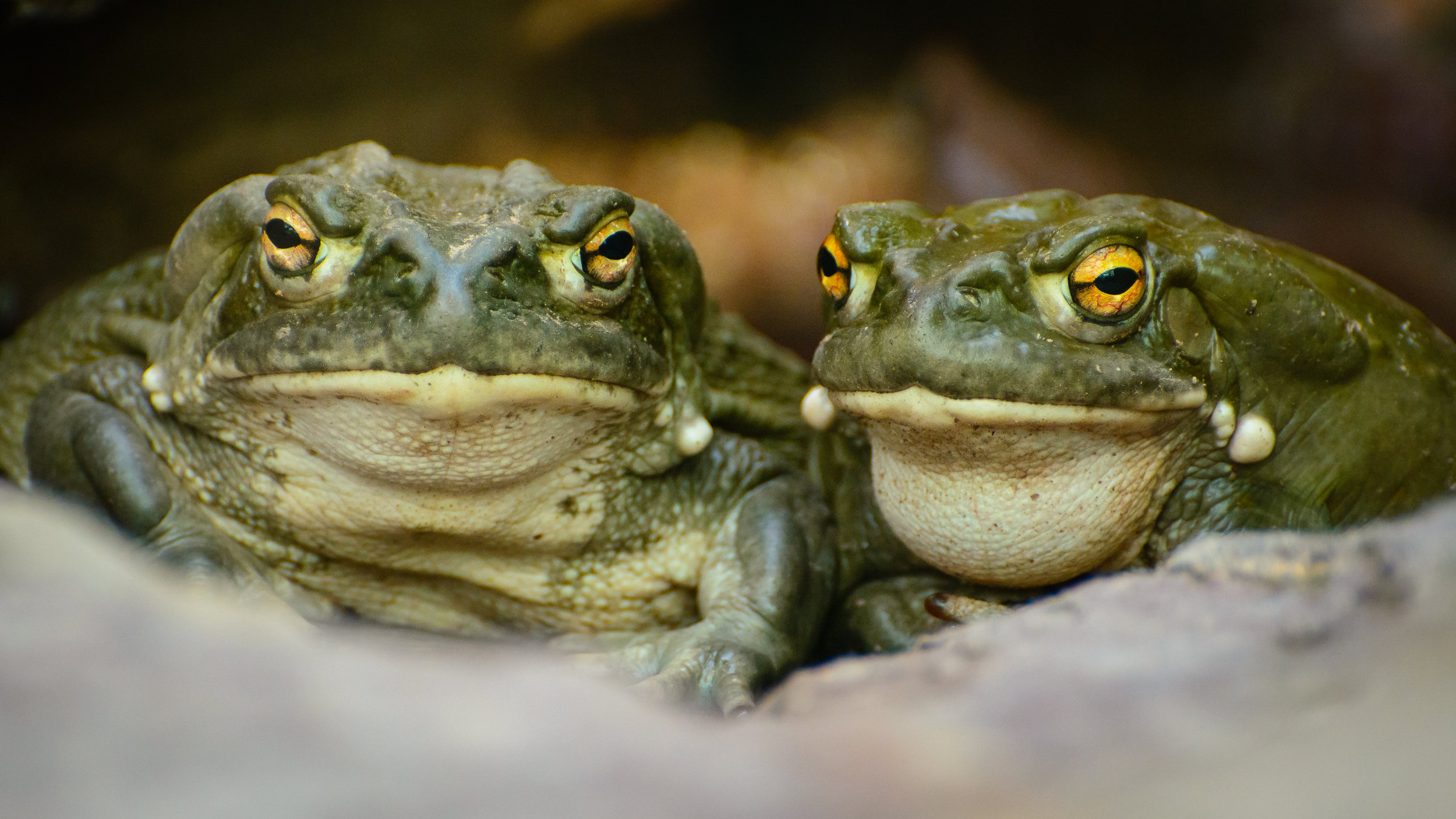
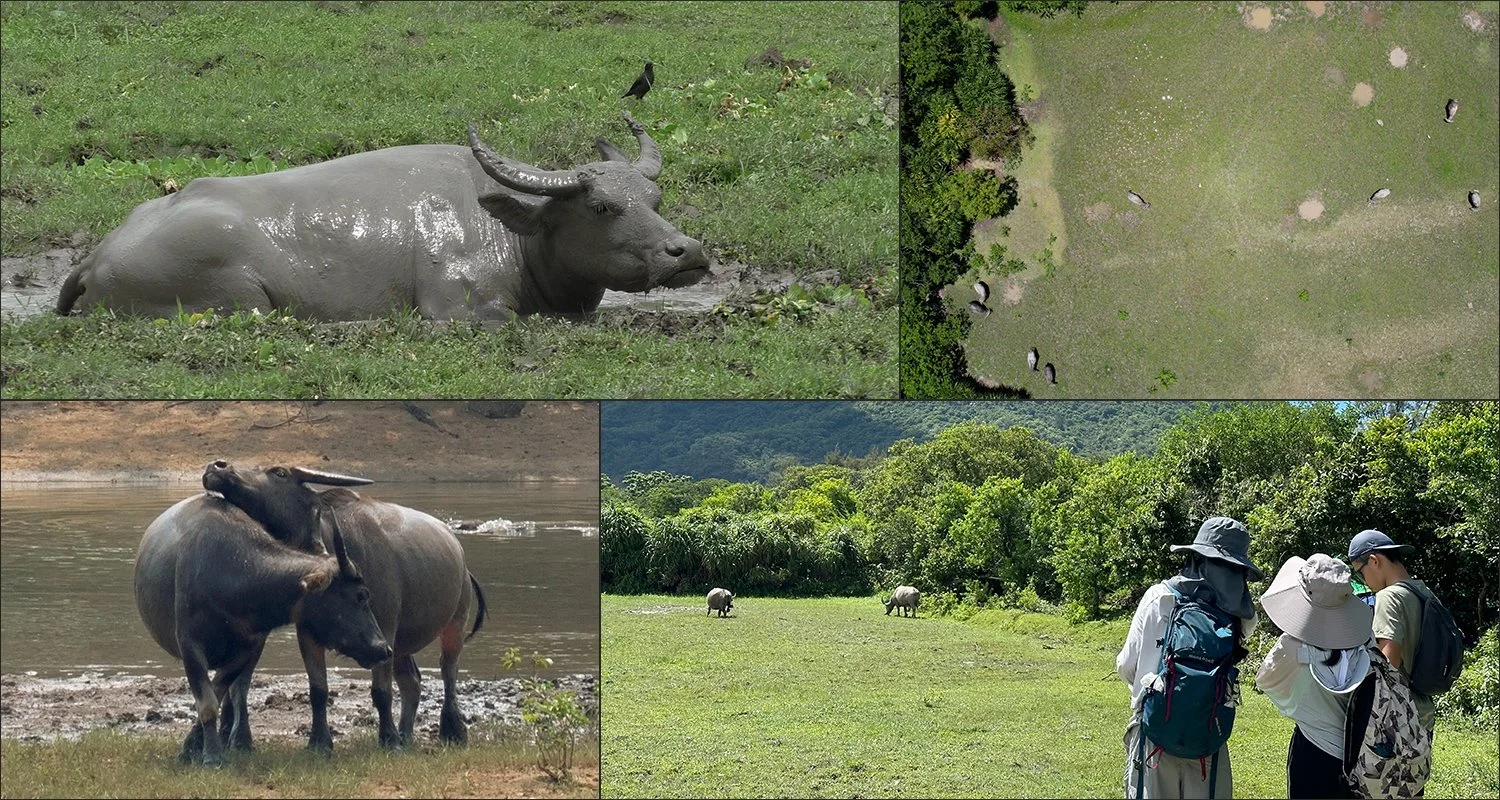
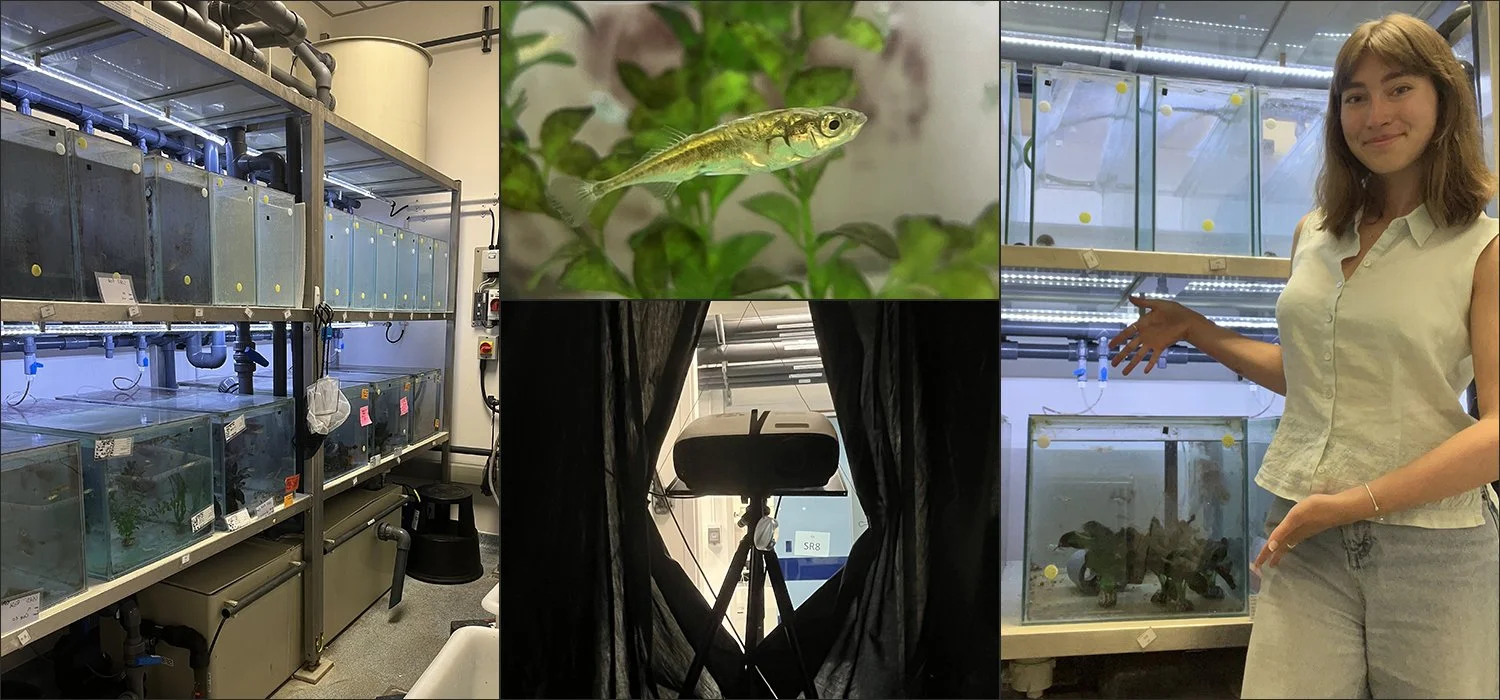
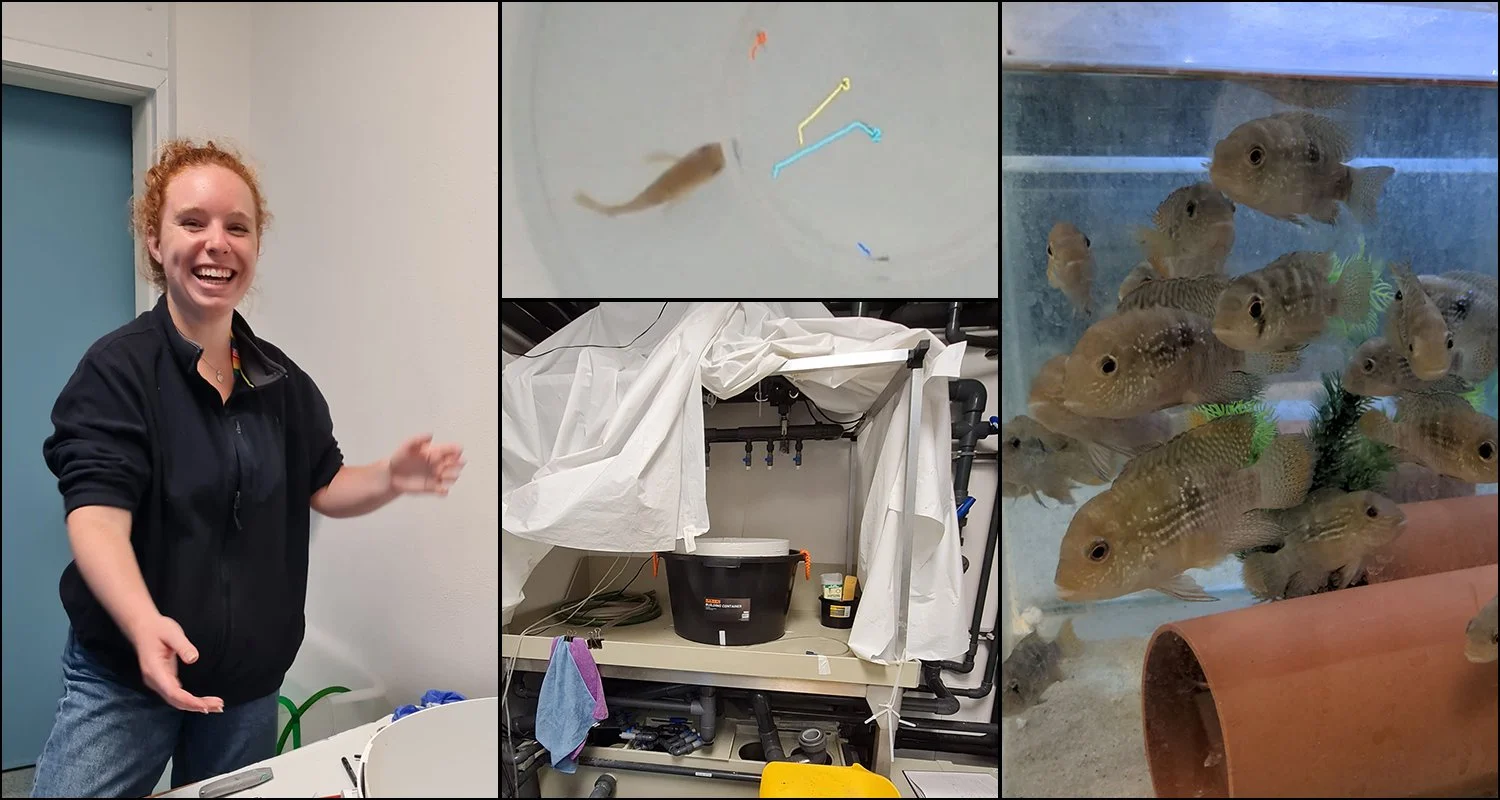

![Muskaan, an Integrated BS-MS Dual Degree student at the Indian Institute of Science Education and Research, was awarded an ASAB Undergraduate Project Scholarship in February 2021 to investigate behavioural differences among the colour morphs of the Blue-tailed Damselfly Ischnura elegans at the University of Lund in Sweden. (Photos © Muskaan) [Other examples of previous projects can be found at the foot of this webpage]](https://images.squarespace-cdn.com/content/v1/55759105e4b0156262b76f6f/1632992778179-XA0LBS4TO2I9JQA9C4HZ/MuskaanUG.jpg)
